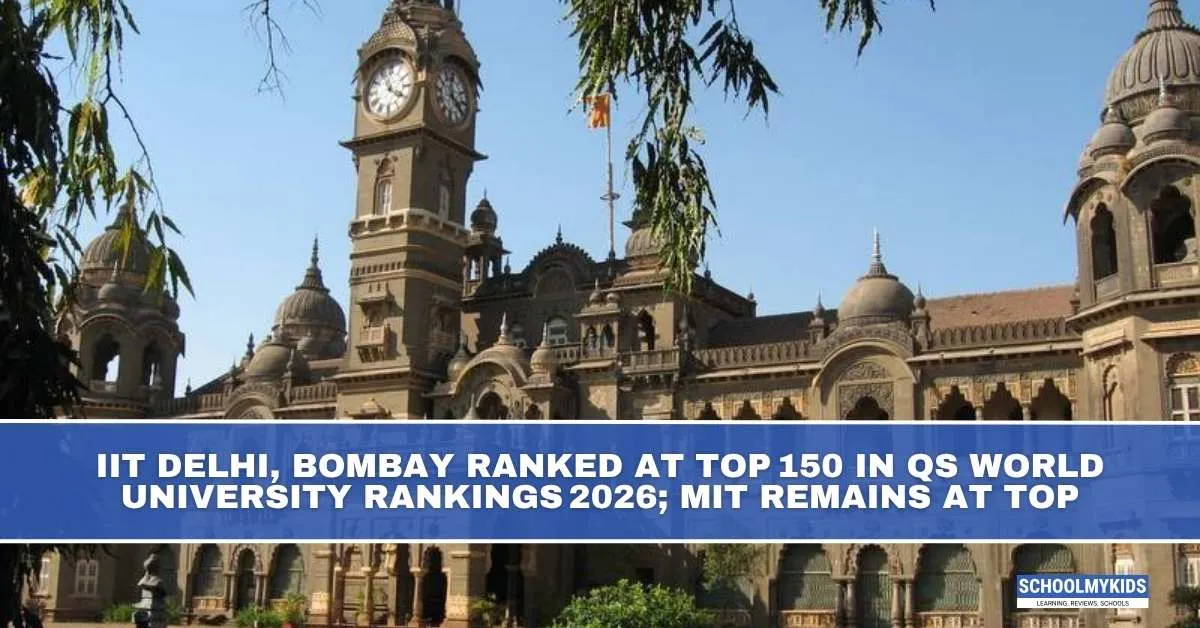The QS World University Rankings 2026 have been released, showcasing notable shifts and achievements in global higher education. Among the highlights, Indian Institutes of Technology (IITs) Delhi and Bombay have secured places within the top 150 globally, marking a significant milestone for Indian technical education. Meanwhile, the Massachusetts Institute of Technology (MIT) has once again secured the top position globally for the 14th consecutive year.
MIT Continues Its Reign at the Top
MIT has retained its number one position with a perfect overall score. Known for its emphasis on innovation, interdisciplinary research, and real-world problem-solving, the institute has continued to outperform its global peers across various parameters. MIT also ranked first in 11 individual subject areas, maintaining its dominance in science, technology, and engineering education.
IIT Delhi Makes a Historic Leap
IIT Delhi has achieved a remarkable jump, moving from 150th in the 2025 rankings to 123rd in the 2026 list. This rise is largely attributed to its improved performance in several indicators:
- Employer Reputation: 50th globally
- Citations per Faculty: 86th
- Academic Reputation: 142nd
The institution’s focused efforts on enhancing research quality, academic partnerships, and industry interface have contributed to this advancement. This is the highest rank ever achieved by an Indian institute in the QS rankings.
IIT Bombay Remains Strong Despite Minor Drop
IIT Bombay, long regarded as one of the top technical institutions in the country, was ranked 129th in the 2026 edition, slightly lower than its 118th position in 2025. Despite the marginal drop, it remains the second-highest ranked Indian institution and continues to enjoy a strong global reputation, particularly in:
- Employer Reputation: 39th globally
The institute's continued focus on innovation, research excellence, and graduate employability helps it remain a key player in the global academic landscape.
Broader Indian Representation
The 2026 rankings featured 54 Indian institutions, making India the fourth most represented country after the United States, the United Kingdom, and China. This reflects the growing global recognition of Indian higher education.
Some other notable Indian entries include:
- IIT Madras: Ranked 180th, up by 47 positions
- IIT Kharagpur: Ranked 215th
- IISc Bangalore: Ranked 219th
- IIT Kanpur: Ranked 222nd, improved by 41 positions
These upward trends indicate consistent improvements in research output, academic impact, and global engagement.
Evaluation Criteria
The QS World University Rankings are based on several key indicators:
- Academic Reputation
- Employer Reputation
- Faculty-to-Student Ratio
- Citations per Faculty
- International Faculty Ratio
- International Student Ratio
- International Research Network
- Employment Outcomes
- Sustainability
While Indian institutions have shown strong performance in employer reputation and research citations, they still lag behind in internationalization and faculty-student ratio, areas where Western institutions typically perform better.
Conclusion
The 2026 QS World University Rankings reaffirm MIT’s global academic leadership while highlighting significant strides made by Indian institutions, particularly IIT Delhi and IIT Bombay. With strategic improvements in research, international collaboration, and student outcomes, India continues to strengthen its position on the global education map.
These developments not only validate the efforts of top Indian institutions but also inspire future reforms aimed at elevating the quality and global standing of Indian higher education.









Be the first one to comment on this story.